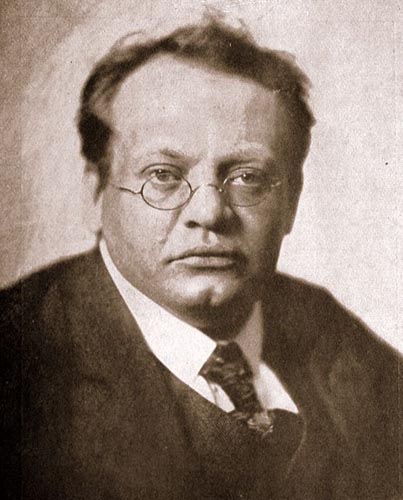In Celebration of the Human Voice - The Essential Musical Instrument
Home | Doo Wop | Barbershop | World | Contemporary | Christian | Vocal Jazz | Choral | Christmas | Instructional | Arrangements
Classical | Opera | Musicals | Personality | Young Singers | Disney | Videos | Songs | The Artists

Max Reger Biography

Click Here for Sheet Music and Songbook Vocal Arrangements
The celebrated German composer Reger (Johann Baptist Joseph) Max(imilian) Reger, was the son of a school-teacher and amateur musician, who gave him instruction on the piano organ, and various string instruments. In 1874 the family moved to Weiden, where he studied organ and theory with Adalbert Lindner. He then attended the teacher-training college; after visiting the Bayreuth Festival in 1888, he decided on a career in music. He went to Sondershausen to study with Riemann in 1890, and continued as his pupil in Wiesbaden (1890-1893). From 1890 to 1896, Max Reger was active as a teacher of piano, organ, and theory. Following military service, he returned to Weiden in 1898 and wrote a number of his finest works for organ. He went to Munich in 1901, first gaining general recognition as a pianist and later as a composer; was professor of counterpoint at the Konigliche Akademie der Tonkunst (1905-1906). Prominent compositions from this period included the Piano Quintet, op. 64 (1901-1902), the Violin Sonata, op. 72 (1903), the String Quartet op. 74 (1903-1904), the Variationen und Fuge uber ein Thema von J.S. Bach for Piano, op. 81 (1904), and the Sinfonietta, op. 90 (1904-1905). He went to Leipzig as music director of the University (1907-1908) and as professor of composition at the Conservatory (from 1907). Max Reger's fame as a composer was enhanced by his successful tours as a soloist and conductor in Germany and throughout Europe. While he continued to produce major chamber works and organ pieces, he also wrote such important orchestral compositions as the Variationen und Fuge uber ein lustiges Thema von J.A. Hiller, op. 100 (1907), the Violin Concerto, op. 101 (1907-1908), the Sympbonischer Prolog zu einer Tragodie, op. 108 (1908), the Piano Concerto, op. 114 (1910), and the Variationen und Fuge uber ein Thema von Mozart, op. 132 (1914). As a result, having been awarded an honorary Ph.D. from the University of Jena in 1908, he composed his most distinguished sacred work, the Psalm C, op. 106 (1908-1909). He was called to Meiningen as conductor of the Court Orchestra in 1911, assuming the title Hofkapellmeister. He was also Generalmusikdirektor (1913-1914). He settled in Jena in 1915. Max Reger was an extraordinarily gifted musician, widely respected as a composer, pianist, organist, conductor and teacher. A master of polyphonic and harmonic writing, he carried on the hallowed Classical and Romantic schools of composition. Although he wrote major works in nearly every genre, his music has not found a place of permanence in the repertoire. |
Select a Category |
Want to Sing? - Find a Chorus Near You
List of Choruses by State | List of Choruses by City
